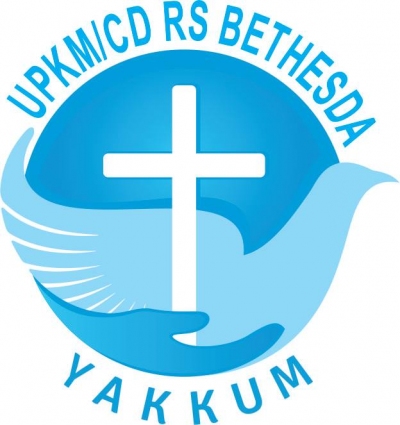Everywhere in Indonesia, we see farmers getting their hands dirty. They bend their back to sow the seeds of rice plants, carefully remove weeds, and harvest hectare after hectare of crops. Reliant on their friend, the sun as they cannot work at night. Yet this life-giving friend is harsh, and the farmers often have to protect themselves by wearing bamboo hats. The farmers’ hats are easily recognized by their pointy shape and are made of bamboo. To make a good hat, one needs to select mature, but not old, bamboo trees with long segments. The segments are then cut, cleaned, and refined into bamboo straw. Making woven bamboo hats takes time and skill, if not woven tight enough, they will leak and water will drop onto your head.
In the Indonesian language, those who wear bamboo hats while doing agriculture work are called petani, which is a gender-neutral term meaning farmer. Yet, the lingo that is more often spoken in our daily lives, and school classes, is Pak Tani, or Mr Farmer. You may also hear the term Bu Tani, or Ms Farmer, such as when a school kid points to a woman working in the field. Bu Tani however is less common than the familiar term Pak Tani.
Considering the gender-specific reference of field workers, we may form the hypothesis that men are more associated with working in the fields than women, similar to mining or other tough industries. In such sectors, the work is often risky, exhausting and uncomfortable, requiring tough humans to get the job done. This is why, traditionally it has been men most likely to work the long, hot days in the fields rather than women. What is evident in Gunungkidul, where the Ngudi Mulya Farmers’ Group came up with their smart mist irrigation system, is contrary to the typical image of women in agriculture. Society often portrays the wives of male farmers as those who come at lunchtime to bring these fatigued men their nourishment. At least, that is how school textbooks picture the roles. In Gudungkidul however, notoriously known for its water-scarce areas, women prevail as farmers.
The female farmers, oftentimes in their old age, retrieve water from distant sources. They walk up and down the hilly region in the province of Yogyakarta with a 25kg load on their shoulders. We can hardly say that it is an easy job. Female farmers take up a significant portion of agriculture work, and Ibu Tani gets her hands dirty, just as “Pak Tani” does.
Realizing how challenging it is to water agricultural lands in Gunungkidul, local farmers build water storage systems. Some farmers buy expensive water—120,000 to 150,000 IDR (approximately 8–10 USD) for a tank of 5 cubic meters—from commercial water trucks to be stored in containers from plastic tarps. As one can guess, this sourcing method is not accessible to everyone. Those who cannot afford the costs end up carrying water long distances to water their crops.
Water scarcity is the very problem the Ngudi Mulya Farmers’ Group are addressing. Their mist irrigation system is installed during the dry season when there are higher rates of water scarcity. Human-made catchment areas are available but already stretched thin for the needs of the surrounding villages. Deep-well pumps are too expensive for the community to afford, despite the pristine river streams flowing underneath the karst formations they live on.
With the mist irrigation in place, members of the farmers’ group can share the limited resources while saving up to 60% of water compared with the regular watering system. Funded by YAKKUM Emergency Unit’s IDEAKSI of Community-led Innovation Partnership (CLIP) program, Ngudi Mulya Farmers’ Group can scale up their innovation to become a smart system. In addition to manual control panels, farmers can customize the schedule and duration of mist sprayed from the pipes. Its adjustability makes it possible for farmers to effectively grow each crop variety based on their specific needs.
The happy crops are not the only ones benefiting from this smart mist irrigation system. Ensuring the sustainability of this innovation will in turn change the financial well-being of the community. The money that is normally used for purchasing expensive water may be redirected towards other needs. Farming families are now able to invest more into their children’s education, better farming tools, or renovate their homes.
What the Ngudi Mulya community has built does not stop by saving time, energy, and money for its member farmers. With the smart system on mobile phones, the younger generation may change their perspective on agriculture work, increasing their interest and participation in farming. The older people are certainly relieved from either buying water or carrying it across steep and slippery paths. Agriculture even becomes more accessible to persons with disabilities. In short, it is a system that has the potential to solve a variety of issues.
So, what do bamboo hats, women farmers, and the mist irrigation system in Gunungkidul have in common? They are all proof of local ingenuity at work. Bamboo is a widely available material and is eco-friendly. Bamboo hats protect the farmers from the sun on the hottest days and the rain on the wettest. The bamboo material also has minimal effect on the environment, from which the local farmers make their living.
Women take part in the agriculture work in the region, not requiring any affirmative action that we push for in contemporary policy making. For the family fields with mist irrigation, the women decide which crop variety to plant. Women are empowered in these cultural settings of a traditional crop-growing community.
Smart mist irrigation is a touch of modern advancement for a context-appropriate answer in the form of a water-saving irrigation system. It reflects the problem-solving capabilities of the local community. The Ngudi Mulya Farmers’ Group and its innovation attest to the resilience of the community in climate adaptation while striving to accommodate everyone in the local economy.
-----
Ngudi Mulya is a group of farmers from the sub-village of Ngoro-oro in Giriasih Village, Gunungkidul District, Special Region of Yogyakarta. The group is one of the innovators for the Community-led Innovation Partnership (CLIP) under the IDEAKSI (Idea Innovation Action Inclusion) program. Carried out by YAKKUM Emergency Unit (YEU), the program is dedicated to supporting local innovators to develop solutions for many issues and challenges faced in terms of emergency response and disaster preparedness to overcome the barriers, increase the effectiveness of DRR, and encourage the involvement of most-at-risk groups in the process of coordination and policy making related to disaster management.
This article is a short reflection on a field visit with the students of the International Undergraduate Program (IUP) in Psychology of Universitas Gadjah Mada (UGM), Yogyakarta. Dr Pradytia Pertiwi, the lecturer of Psychology of Disaster and Crisis at UGM, led the students on their field trip to meet Ngudi Mulya farmers. Dr Pertiwi is an associate of YAKKUM Emergency Unit and an external evaluator for the CLIP program. She continues her collaborative work by leading the students through the local community, facilitating their learning on localization in DRR.
During this visit on Friday, 21 October 2022, the farmers shared their stories leading up to the development of the smart mist irrigation system. They showed how this innovation is a feasible solution in their local context.




























Social Media
@yakkumemergency
yakkumemergency
@YEUjogja